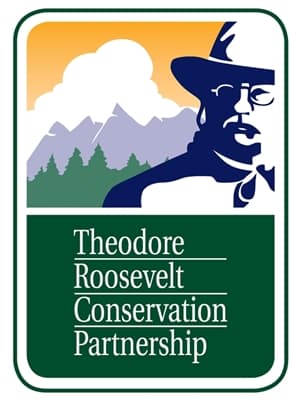Wyoming Range Lands Withdrawn from Energy Development

Critical wildlife habitat in Hoback Basin encompassed in lease buybacks made possible through the Wyoming Range Legacy Act
Under a groundbreaking agreement announced today, 58,000 acres of valuable fish and wildlife habitat in a fish- and wildlife-rich region of northwest Wyoming prized by sportsmen will be permanently withdrawn from oil and gas development.
Located in northwest Wyoming’s Hoback Basin in and around the Bridger-Teton National Forest, the lands had been leased for development by Plains Exploration & Production Company, or PXP. The Trust for Public Land, a partner of the Theodore Roosevelt Conservation Partnership, entered into an agreement with PXP to purchase the leases; upon completion of the transaction, the leases will be retired. Wyoming Gov. Matt Mead and TPL announced news of the arrangement in Jackson, Wyo., this morning.
The Hoback Basin, a sportsmen’s paradise in northwestern Wyoming, has provided Americans with hunting and angling opportunities for more than a century and is home to outstanding elk, mule deer, moose and bighorn sheep hunting, as well as fishing for Snake River cutthroat trout.
“We are thrilled with the outcome of negotiations between PXP, the Trust for Public Land and others that will conserve critical wildlife habitat for sportsmen and other recreationists to experience and enjoy,” said Ed Arnett, director of the TRCP Center for Responsible Energy Development. “Even the most carefully planned development in this area could have further jeopardized mule deer herds already in serious decline.”
Conservation of this portion of the Wyoming Range is critically important to mule deer herds already impacted by energy development on Wyoming’s Pinedale Anticline, which has seen 60-percent losses in mule deer numbers over the past decade. The PXP leases encompass important stopover areas used by mule deer during their seasonal migrations. These areas play a critical role for mule deer – both in the spring, while the deer are building strength to reproduce and move to summer range, and in the fall, when they are gaining weight to prepare for winter.
“This agreement shows that we can find common ground between conservationists, hunters, anglers – and even oil and gas developers,” said TPL Northern Rockies Director Deb Love. “We can come together to solve our toughest problems and reach solutions that are fair to all sides.” The Trust for Public Land must raise an additional $4.25 million by Dec. 31 to complete the transaction.
The energy lease buybacks are made possible under the Wyoming Range Legacy Act, legislation whose introduction and passage was long championed by the TRCP and other sportsmen’s groups. Before his death, Sen. Craig Thomas of Wyoming conceived of the act, which was formally introduced by Sens. John Barrasso and Mike Enzi and signed into law in 2009. Among other provisions, the Wyoming Range Legacy Act allows leases to be retired permanently when purchased instead of being resold to other oil and gas companies.
“While the TRCP commends this agreement and the implementation of the Wyoming Range Legacy Act, responsible energy development begins with better planning that avoids such important areas in the first place,” concluded Arnett. “Our goal should be to eliminate the need for buyouts as a mitigation tool as we continue to develop energy resources on public lands.”
Wyoming hunters and anglers identified this area as one of the most important in the state through the TRCP’s Sportsmen Values Mapping Project.
The TRCP believes that to better balance the concerns of fish and wildlife in the face of accelerating energy development, federal land management agencies must follow the conservation tenets outlined in the FACTS for Fish and Wildlife.

